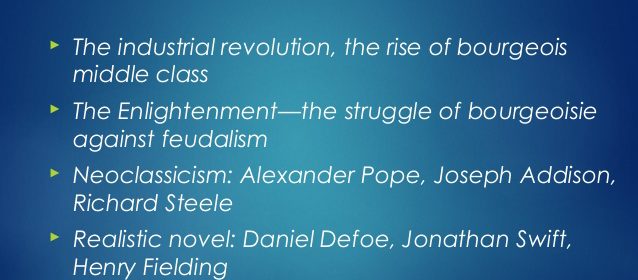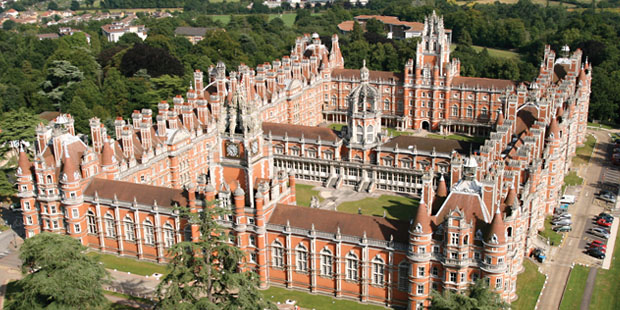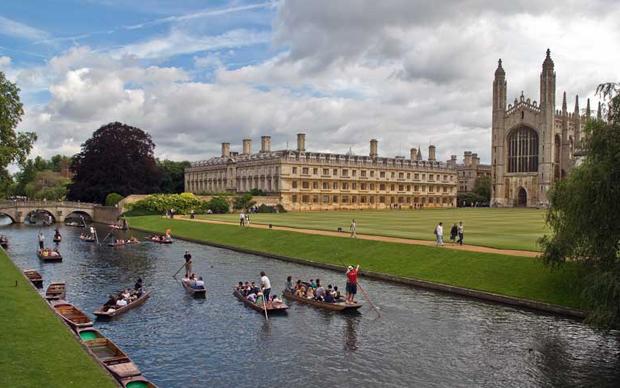Rise of English: Liberal Humanism

Rise of English 1: Liberal Humanism
Written by bunpeiris
Rise of English 1: Liberal Humanism is the first article of a series of articles titled “Rise of English“. It has dual purposes: to enlighten the readers of the value of English language in the global stage; to bring in the Literature in English closer to your sense of humanity.
A Pan Am 727 flight, waiting for start clearance in Munich, overheard the following: Lufthansa (in German): “Ground, what is our start clearance time?”
Ground (in English): “If you want an answer you must speak in English.”
Lufthansa (in English): “I am a German, flying a German airplane, in Germany. Why must I speak English?”
Unknown voice from another plane (in a British accent): “Because you lost the bloody war!”
The wit of the retort of the British pilot encapsulates the very reason for the Rise of English. That’s the Rise of English in a nutshell for you. Those who are engaged in business and war all over the world, perhaps wouldn’t have found, the two contrasting trades wouldn’t have been so easy, if not for the Rise of English to the global prominence following the Germany’s lose of two consecutive world wars.
But then the same populace the world over wouldn’t have found English language suits their purposes so well, had it been governed by an equivalent of The Académie française, the sole authority on all matters pertaining to French language: English that was once British, today is free for the rest of the world to reinvent, as William Shakespeare invented the human. [With apologies to Harold Bloom] The Indians & other nationalities of Indian origin have been exceptionally competent in this trade. The leading lights are V. S. Naipual, Salman Rusdie, Amitav Ghosh, R. K. Narayan, Shaski Thakur and Amarthya Sen.
But then all of those would unanimously agree that English wouldn’t have risen, in the first place, if not for the Great British Market that had been exploiting today’s third world countries for nearly a century and a half.
Is that all that could be attributed to the Rise of English? Perhaps not.
First universities in England
In the backdrop of global status today of English language, the status of same till not so long ago, would make everyone puzzled. Until the first quarter of the nineteenth century, English was a monopoly of the Church of England: English wasn’t taught in either Oxford or Cambridge, then only universities in Britain.
To the universities of Cambridge and Oxford none other than male Anglican communicants were admitted; the teachers were unmarried ordained ministers who could live in the college; Catholics, Jews, Methodists and atheists wouldn’t be admitted. Such was the status of higher education in England. And that was right up to 1820s.The pathetic stalemate was broken in 1826 when a University College was founded in London with a charter to award degrees to men.
Now, for the purpose of smoother, easier reading of this article tick the contention that you prefer in the columns A & B next to it, in the narrow column with ‘1’ & total up your marks.
|
1
|
There is such a thing as ‘human nature’. | There is no essential ‘human nature’. ‘Human nature’ is unstable and contingent upon social conditioning and other external influences. | ||
|
2
|
The moral contention of literature is its raison d’etre [the most important reason or purpose for someone or something’s existence] formal literary qualities & historical contexts are secondary to the moral power and influence of the literary text. | Literature is a moral form, but its moral content is always ideologically mediated. Literature is a product of particular political and historical moment. | ||
|
3
|
Literary texts have inherent meanings and it is the task of the literary critic to illuminate these for the reader | Literary texts have no inherent meaning; each reading of a literary text is produced within a particular social and historical context. A twenty-first century reading of ‘Hamlet’ is simply different from nineteenth-century reading; neither one is necessarily correct. | ||
|
4
|
Broadly speaking, the purpose of language is to reflect reality. | Language does not reflect reality but produces it; no reality can exist outside of, prior to, language. | ||
|
5
|
The study of literature is or should be a civilising process. | The teaching of literature can also too easily become an ideological tool of the middle class to reproduce their own values. | ||
|
6
|
Great literature can lift the reader clear of the bondage of history. | Litrature is always a product of a particular historical moment and can only be understood within the context of the historical moment when it was produced. | ||
|
7
|
Great literature is timeless. | No literature is timeless. It is possible that in 500 years’ time no one in Britain will be interested in Shakespeare or Dickens. | ||
|
8
|
Some literature is more valuable than other literature. | Literary value is historically, socially and politically contingent. A text that one particular society or social group might regard as being of great value (morally, philosophically or artistically) may be worthless to another society or social group. All value is relative, and no absolute value judgments can be made. | ||
|
9
|
Interpreting language means attending to the connections between words and the external world of ‘reality’. | Interpreting language means attending to a signifying system or network of relations that depends on relations of difference between signs in a chain of signifiers. | ||
|
10
|
Words are symbols that have a natural connection with the world, so these symbols call up likeness, similarities and affinities with the world outside language | Because the meaning of signs depends on relations of difference the element of contrast or binary opposition is fundamental to language and thought. | ||
|
11
|
A text is above all the expression of an individual author’s mind and feelings. | The relationship in and between texts are the production of a culture, not individuals. | ||
|
|
column A | column B |
Now, complete following
Total number of ‘A’ statments you agree: ________
Total number of ‘B’ statments you agree: ________
Now, go on reading the article, and see for yourself, where you are.
Beginning of Teaching English Language
Beginning with 1828, English language was offered as a subject of study. But then again, it wasn’t really English language as we know it. It was mainly the study of English language, merely using literature as a source of linguistic [1] examples. English literature as such was first taught at King’s College, London (another college of what later became University of London) beginning in 1831.
Barry, Peter. Beginning Theory.

University of London
Kings’ College in London introduces a English Study Course
In 1840, upon the appointment as professor of English at Kings’s College in London, F. D. Maurice introduced the study of set books, and laid down some of the principles of liberal humanism. However the honour of the introduction of liberal humanism is traditionally bestowed upon Mathew Arnold. [2]
Rationale beyond the introduction of Liberal Humanism
The populace of England had been fragmented upon the social class system weighed down by the factors of wealth, occupation and education. Civil equality is called for.
There was, behind the teaching of early English, a distinctly Victorian mixture of class guilt about social inequalities, a genuine desire to improve things for everybody, a kind of missionary zeal to spread culture and enlightenment, and a self-interested desire to maintain social stability.
Barry, Peter. Beginning Theory.
Oxford University shoots down the subject of English
It took no less than nearly another five decades for Oxford University to take a turn to look into the possibility of introducing English language as a subject as Kings’s College in London did. That was in 1887. But then, sunk in their own parameters of modes and purposes of examinations, burdened by their own scales to award certifications, they ripped off the fledging sailcloth of the ship of English just about to launch. The man who rocked the boat was Professor of History at Oxford, Edward Freeman: his assault resembled a callous handling of pirate sailor, rather than a delicate touch of a captain who could charter a new route. Freeman went down in the history.
Freeman: “We are told that the study of literature cultivates the taste, educates the sympathies and enlarges the mind.” These are all excellent things, only we cannot examine tastes and sympathies. Examiners must have technical and positive information to examine.”
Barry, Peter. Beginning Theory.

University of Oxford
The condemnation, beginning with its very tone itself is callous : “We are told”. Firstly, he wouldn’t even grudgingly acknowledge the validity of the contention in hand. Secondly, if the examiners are unable to make evaluation without technical and positive information, the fault isn’t at all due to credibility of the subject, yet merely of human limitation itself. Well, that would be very reason we should study human condition, i.e. literature or English. University of Oxford failed to realise the greater importance ought to be given to the clear and present need of the subject above the complexities of modes of evaluation and assessment. Following the assault by Edward Freeman, it was not until 1894, that University of Oxford was able to rise up & regroup.
University of Cambridge makes a move
University of Cambridge founded in 1911, with its lesser weight in tradition in comparison to University of Oxford, whose history runs as far as 1096, found it easier to introduce the subject of English. In 1929, I. A. Richards paved the way by pioneering a technique called Practical criticism wherein text is isolated from history and context. I. A. Richards‘s method is still alive and vibrant.

Cambridge University
Instead of having to study, say, the Renaissance period as a distinct historical moment, with its characteristics outlook, social formations, and so on, students could learn the technique of practical criticism and simply analyse ‘the words on the page’. The gain from this was that it was no longer possible to offer a vague, flowery, metaphorical, affusion and call it criticism.
Barry, Peter. Beginning Theory.
I. A. Richards argued that there should be much more close attention to the precise details of the text: close reading. I. A. Richards was followed by F. R. Leaves, who extended the ‘close-reading‘ method beyond poetry to novels and other material.
Nevertheless his approach had pitfalls:
[a] It was considered overwhelmingly moral; its purpose is to teach the humanity about life, to transmit humane values.
[b] The critical terms weren’t adequately defined.
The situation gave rise to further developments: study of literature claimed independence
[a] from language studies
[b] from historical considerations
[c] from philosophical questions.
From thereon emerged the literary theory of Liberal humanism.
Liberal humanists analyze the text with no predetermined ideas or bias. Therefore a Marxist or Feminist could not, in fairness, call themselves a liberal humanist.
Ten tenets of liberal humanism [corpus of attitudes, assumptions, ideas we pick up]
The ten tenets are invisible guidelines used by the literary critics in reading a text. These are brought to the surface by a conscious effort of will.
[1] Timeless: Good literature is of timeless significance: it never fails to transcend the limitations and peculiarities of the period it was written. Therein is its appeal to the all times all cosmos. Therein it speaks to the human nature: while the works of literature could be set in a specific period, it would contain a ‘universal truth’
“He is not for an age, but for all times” Ben Jonson of the Master. He is the one and only master. There is no other Master of English language. All the rest of other famous writers are competent practitioners of English language.
The earliest recorded explication of timeless significance in humanity comes from Plato.
Plato argued that destiny of the soul is to ascend, through contemplation, from the sensible and temporal world to the timeless and intelligible one, the world of eternal truth, goodness, and beauty.
Plato reminds me of Buddha: for he invokes a spiritual path by which we can ascend to the highest wisdom beyond worldly attachments. Buddha termed “Path to the Enlightenment”
[2] Logical: The text is context-independent:meaning and quality are inherent, not applied from a meta-language [language or terms we use to discuss the subject].
The literary text contains its own meaning within itself. It doesn’t require any elaborate process of placing it within a context whether this be:
[a] Socio-political-the context of a particular social ‘background’ or political situation, or [b] Literary-historical-whereby the work could be seen as the product of the literary influences of other writers, or as shaped by the conventions of particular genres, or [c] Autobiographical- that is, as determined by the personal details of the author’s life and thought.Of course, as scholars, most academics would assert the value of studying these contexts,critics would adhere to the approach which insists upon the primacy and self-sufficiency of the ‘words on the page’ that commits them to the process which has been called ‘on-sight close reading’. Essentially, this removes the text from all these contexts and presents it unseen for unaided explication by the trained mind.
Barry, Peter. Beginning Theory.
[3] Free mind: Literature should be studied closely, without expectations or pre-conditions.
To understand the text well it must be detached from these contexts and studied in isolation. What is needed is the close verbal analysis of the text without prior ideological assumptions, or political pre-conditions, or indeed, specific expectations of any kind, since all these are likely to interfere fatally with what nineteenth-century critic Mathew Arnold said was the true business of criticism, ‘to see the object as in itself it really is’
Barry, Peter. Beginning Theory.
[4] Human nature: It is recorded that following the invasion of Britain in 55 BC Julius Ceaser was taken aback to see the full spectrum of human emotions in the barbarians too as was in the civilized Romans.
Humans are motivated and influenced by the same things throughout history. Human nature is unchanging.
Human nature is essentially unchanging: the same passions, emotions, and even situations are seen again and again and throughout human history. It follows that continuity in literature is more important and significant than innovation. Thus, well-known eighteenth-century definition of poetry maintains that it is ‘what oft was thought but never so well expressed’.
Likewise, Samuel Jonson famously deigrated Sterne’s novel Tristram Shandy on the grounds of it novelty, that is its originality.
Barry, Peter. Beginning Theory.
[5] Individuality: The text should speak to unique human without influences through the environment “social, education, politics”
Individuality is something securely possessed within each of us as our unique ‘essence’. This transcends our environmental influences, and though individuality can change and develop (as do characters in novels) it can’t be transformed-hence our uneasiness with those scenes (quite common, for instance, in Dickens) which involve a ‘change of heart’ in a character, so that the whole personality is shifted into a new dimension by force of circumsatnce-the miser is transformed and changes his ways, or the good man or woman becomes corrupted by wealth. Such scenes imply a malleability in the essance of charater which is at odds with this underlying assumption of English studies. The discipline as a whole belived in what is now called the ‘transcendent subject’, which is the belief that the individual (‘the subject’) is antecedent to, or transcends, the forces of society, experience, and language.
Barry, Peter. Beginning Theory.
[6] Literature shouldn’t profess or propagate ideological or political views explicitly even though when such concepts are viewed favourably worldwide; it must present itself in such a subtle way, the reader must be left to his own interpretation and it should never have an overt agenda of trying to change someone.
In other words, the transmission of moral message shouldn’t be too obvious, dogmatic, programmatic.
The purpose of literature is essentially the enhancement of life and the propagation of human values; but not in a programmatic way:if literature, and criticism become overtly & directly political they necessarily tend towards propaganda. And as Keats said, ‘we distrust literature which has a palpable design upon us’, that is, literature which too obviously wants to convert us or influence our views. Barry, Peter. Beginning Theory.
[7] Form and content are combined together.
Form [how it is said-type of writing (novel/play etc), how it satisfies the genre, narrative voice] and content in literature [what is said in the work of literature] Writer should strive to reach this end: striving for and reaching it is a sign of quality. Form serves the content and appreciated in tandem by the readers.
Form and content in literature must be fused in an organic way, so that one grows inevitably from the other. Literary form should not be like a decoration which is applied externally to completed structure. Imagery, for instance, or any other poetic form which is detachable from the substance of the work in this way, rather than being integrated with it, is merely ‘fanciful’ and not ‘imaginative’ [the distinction made by Colerdige in the Biographia Literaria).
Barry, Peter. Beginning Theory.
[8] Sincerity: A writer should write with his heart and mind. As the in the real life, sincerity is an essential element in literature. As one should live a life true to himself, the writer should present a work of literature true to his own self.
The text need to be composed of the ideal words or images to communicate its ideas: unnecessary or narcissistic artifices must not be allowed to creep in while experiencing truth.Work must be sincere.
Emotion in a work should be reflected in the actions of the charaters. It shouldn’t be explicitely pointed out. Writer should not get carried away to let his emotions over inflated with language.
Sincerity [comprising truth-to experience, honesty towards the self, the capacity for human empathy and compassion] is a quality which resides within the language of literature.
It isn’t a fact or an intention behind the work, which could be gleaned by comparing, say, a poet’s view of an event with other more ‘factual’ versions, or from discovering independent, external information about the author’s history or conduct.
Rather, sincerity is to be discovered within the text in such matters as the avoidance of cliché, or of over-inflated forms of expression; it shows in the use of first hand, individualistic description, in the understated expression of feeling, whereby (preferably) the emotion is allowed to emerge implicitly from the presentation of an event.Moreover, when the language achieves these qualities, then the unruly sincere poet can transcend the sense of distance between language and material, and can make the language seem to ‘enact’ what it depicts, thus apparently abolishing the necessary distance between words and things.
Barry, Peter. Beginning Theory.
[9] Value of literature: It shows readers, not tell, the truth on human condition, conflict, character and events rather than lecturing and explaining. Ideas are not expected to be lectured, but acted upon, embodied in the narrative.
What is valued in literature is the ‘silent’ showing and demonstrating of something, rather than explaining, or saying, of it. Hence, ideas as such are worthless inliterature until given the concrete embodiment of ‘enactment’.
Barry, Peter. Beginning Theory.
[10] Criticism: Criticism should guide the reader toward what is present in the text and no more. Criticism depends upon what is made evident to the senses or experience.
The job of criticism is to interpret the text, to mediate between it and the reader. A theoretical account of the nature of reading, or of literature in general, isn’t useful in criticism, and will simply, if attempted, encumber critics with ‘preconceived ideas’ which will get between them and the text.
Barry, Peter. Beginning Theory.
Rise of English 2 follow
______________________________________________________________________
Footnotes
[1] Linguistics, the scientific study of language: language form, language meaning, and language in context. The earliest activities in the description of language have been attributed to Pāṇini, who was an early student of linguistic (4th century BCE), with his analysis of Sanskrit in Ashtadhyayi. That’s, of course, from hthe East, or to be precise from India.
In the west, the word was first used in the middle of the 19th century to emphasize the difference between a newer approach to the study of language that was then developing and the more traditional approach of philology.
The differences linguistics and philology have been largely matters of attitude, emphasis, and purpose.
The philologist is concerned primarily with the historical development of languages as it is manifest in written texts and in the context of the associated literature and culture.
The linguist, though he may be interested in written texts and in the development of languages through time, tends to give priority to spoken languages and to the problems of analyzing them as they operate at a given point in time, without reference to their history. The linguist, in principle, is interested in all languages and not merely in the great literary languages of the world.
Now you will realize, broadly speaking, ‘A’ statements express liberal humanist ideas about literature, and ‘B’ statements express approaches taken by theorists about literature since around the 1960s. They have been put together in pairs like this so you can see just how much the two positions seem to ‘oppose’ one another.
Most people, when asked these question, would align with liberal humanist position; this tends to be the ‘common sense’ view, and certainly appeals to some of the most vital reasons we choose to read literature: to learn about ourselves, our world, and to have some kind of enriching experience. This connection of literature to ideas of human purpose is one that runs back centuries you see this very readily while you study works of literature like Homer’s The Iliad or Shakespeare’s Hamlet.
Bibliography
Barry, Peter. Beginning Theory. Manchester university Press, New York, 2009.
Barnsley, Sarah. Approaches to text, University of London, London, 2012
http://www.londoninternational.ac.uk/sites/default/files/magazine/approaches_to_text_taster.pdf
